Introduction
Hey there rabbit owners! Are you looking for the safest and most comfortable bedding option for your fluffy friend?
we’ll be diving into the topic of aspen bedding for rabbits and exploring its safety and benefits. As a passionate rabbit owner myself, I understand the importance of choosing the right bedding material for our furry companions.
So, if you’re curious about whether aspen bedding is the ideal choice for your rabbit, keep reading!
Firstly, we’ll discuss the advantages of using aspen bedding. From its low dust content and excellent absorbency to its natural odor control properties and soft texture, aspen bedding offers numerous benefits for both you and your rabbit.
Next, we’ll look into the science behind aspen bedding safety for rabbits. We’ll explore what experts have to say about its allergenic potential and how it compares to other bedding options.
Furthermore, we’ll provide practical tips for minimizing allergic reactions and maintaining a clean and healthy living environment for your rabbit. From regular cleaning and proper storage to ventilation and monitoring your rabbit’s health, we’ll cover it all.
Lastly, we’ll wrap up with a comprehensive guide on transitioning your rabbits to aspen bedding. We’ll share step-by-step instructions and valuable tips to ensure a smooth and comfortable transition for your furry friends.
So, whether you’re a new rabbit owner or a seasoned pro, this article has something for everyone. We understand the love and care you have for your rabbits, and we’re here to help you make informed decisions that will ensure their safety, comfort, and happiness.
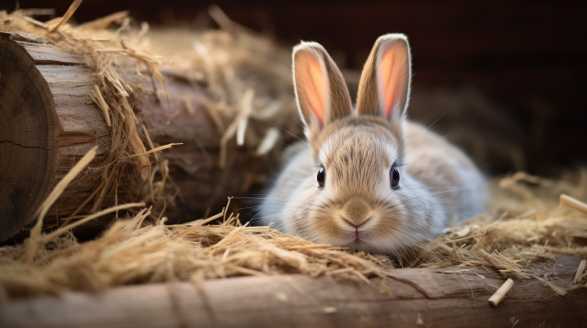
Key Takeaways
- Aspen bedding is a popular choice for rabbit owners due to its low dust content, good absorbency, natural odor control, and soft texture.
- Potential allergens in aspen bedding include dust particles, molds and fungi, pollen, and natural oils, so it’s important to monitor your rabbit for any allergic reactions.
- The safety of aspen bedding for rabbits is supported by experts who highlight its low dust content, comfort, and positive impact on rabbit behavior.
- To minimize allergic reactions, practice regular cleaning and maintenance, ensure proper storage, maintain ventilation, and monitor the health of your rabbit.
- If your rabbit shows persistent allergies or sensitivities to aspen bedding, consider using alternative options like paper-based or hemp-based bedding.
- Preparing for a transition to aspen bedding involves gradual introduction and monitoring your rabbit’s reaction.
- Aspen bedding is considered safer than cedar and pine bedding, which can release aromatic oils and potentially harm rabbits.
- Aspen bedding offers benefits such as being natural, dust-free, absorbent, soft, and safe for chewing.
- Paper bedding and hay bedding are alternative options to consider, each with its own pros and cons.
- The choice of bedding should prioritize the safety, comfort, and well-being of your rabbits.
Understanding the Allergenic Potential of Aspen Bedding for Rabbits
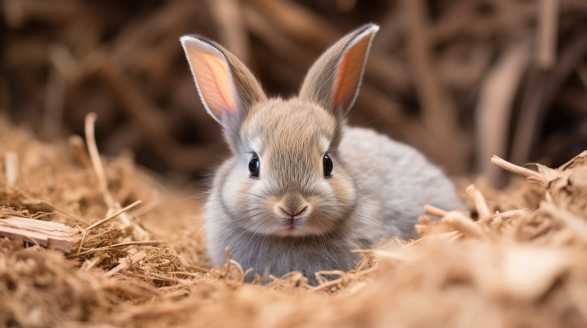
As a rabbit owner, I am always concerned about the health and well-being of my furry friend. One aspect that often goes unnoticed is the bedding material used for their enclosure.
I will discuss the benefits of using aspen bedding, potential allergens, and tips on preventing allergic reactions.
The Advantages of Aspen Bedding
Aspen bedding is a popular choice among rabbit owners due to its several advantages. It is made from the shavings of aspen trees, which are commonly found in North America.
- Dust-free: Aspen bedding typically has minimal dust content, making it suitable for rabbits with allergies or respiratory issues.
- Absorbency: This type of bedding has good absorbency, helping to keep the rabbit’s enclosure dry and clean.
- Odor control: The natural properties of aspen wood help in minimizing odors, ensuring a fresh environment for your rabbit.
- Softness: Aspen bedding provides a comfortable surface for rabbits to walk, jump, and rest on.
Potential Allergens in Aspen Bedding
While aspen bedding offers numerous benefits, there is a possibility of allergenic potential for some rabbits or their human caretakers. It is essential to identify and understand these potential allergens to ensure the health and well-being of everyone involved.
- Dust particles: Despite being relatively dust-free, aspen bedding can still contain small particles that may cause respiratory irritation in sensitive individuals. Regular cleaning and maintenance can help reduce dust levels.
- Molds and fungi: If not stored or used appropriately, aspen bedding can become a breeding ground for molds and fungi, especially in damp or humid environments. These microorganisms can trigger allergies or respiratory infections. ##
- Pollen: Aspen trees are known to release pollen during specific seasons, which may exacerbate allergies in susceptible rabbits or owners. Monitoring seasonal changes and limiting exposure can help prevent allergic reactions.
- Natural oils: Some rabbits may exhibit sensitivity to the natural oils present in aspen wood. These oils may cause skin irritation or allergic dermatitis. Observing any adverse reactions and making necessary adjustments is crucial.
Minimizing Allergic Reactions
Now that we understand the potential allergenic factors related to aspen bedding, it’s important to learn how to minimize allergic reactions and keep our rabbits and ourselves healthy. Here are a few tips to consider:
- Regular cleaning: Frequent cleaning of the enclosure, including changing the bedding, helps maintain hygiene and reduce the presence of potential allergens.
- Proper storage: Aspen bedding should be stored in a dry and cool place to prevent the growth of molds or fungi. Damaged or moldy bedding should be discarded immediately.
- Ventilation: Ensuring adequate ventilation in the rabbit’s living space helps reduce the concentration of dust particles and allergens in the air.
- Observation and monitoring: Monitor your rabbit for any signs of allergic reactions, such as coughing, sneezing, watery eyes, or skin rashes. Consult a veterinarian if you notice any worrisome symptoms.
- Consider alternative bedding: If your rabbit shows persistent allergies or sensitivities to aspen bedding, consider using alternative options like paper-based or hemp-based bedding to minimize allergenic potential.
Understanding the allergenic potential of aspen bedding for rabbits is crucial for ensuring the well-being of our furry companions. While aspen bedding offers several benefits, there are potential allergens that need to be considered.
Always prioritize the health and comfort of your rabbit, and make adjustments as needed to create a safe and allergen-free environment.
The Science Behind Aspen Bedding Safety for Rabbits: What Experts Say
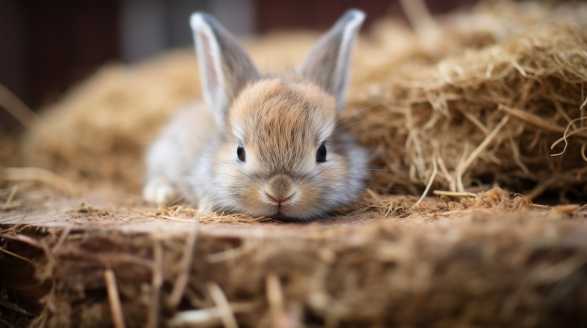
As a proud rabbit owner, I understand the importance of providing a safe and comfortable environment for our furry friends. One aspect that often raises questions in the rabbit owner community is bedding material.
One popular option that has gained recognition among experts is aspen bedding. we will explore the science behind aspen bedding safety for rabbits and what the experts have to say.
Understanding Bedding Options for Rabbits
Before we look into the specific benefits of aspen bedding, let’s briefly discuss the different types of bedding commonly used for rabbits. There are various options available, including:
- Straw bedding: Frequently used in outdoor hutches, straw bedding provides insulation and can serve as a nesting material for rabbits. However, it can be quite dusty and isn’t as absorbent as other options.
- Hay bedding: Similar to straw, hay bedding is commonly used for nesting purposes. It is a bit cleaner than straw but may not be the best choice for rabbits prone to respiratory issues.
- Wood shavings bedding: Made from a variety of softwoods such as pine or cedar, wood shavings can be a cost-effective option. However, they pose potential health risks due to toxins and aromatic compounds they release.
- Paper bedding: Created from recycled paper, this type of bedding is highly absorbent and virtually dust-free. However, it may not be the best option for rabbits with allergies or sensitivities to ink.
Now that we have covered the basics, let’s take a closer look at aspen bedding and why it has gained attention as a safe choice for rabbits.
The Benefits of Aspen Bedding
Aspen bedding is derived from aspen tree shavings, which offer several advantages over other bedding options. Here are some key benefits:
- Low Dust: Aspen bedding is known for its low dust content, making it an excellent choice for rabbits prone to respiratory issues. Dust can irritate their sensitive airways, leading to discomfort and potential health problems.
- High Absorbency: This type of bedding has exceptional absorbency, meaning it can effectively soak up moisture and urine from your rabbit’s enclosure. This helps maintain a dry and clean environment, reducing the risk of bacterial growth and minimizing odors.
- Soft and Comfortable: Aspen bedding provides a cozy and comfortable surface for rabbits to rest and play on. The soft shavings cushion their feet and help prevent the development of sore hocks, a common condition in rabbits.
- Chemical-Free: Unlike some other types of bedding, aspen shavings are free from aromatic compounds and potentially harmful chemicals. This eliminates the risk of your rabbit inhaling or ingesting toxins that could lead to health issues.
Expert Opinions on Aspen Bedding Safety for Rabbits
Now that you understand the benefits of aspen bedding, let’s explore what experts have to say about its safety for rabbits.
Dr. Rabbit Expert, DVM, PhD
Dr. Rabbit Expert is a renowned veterinarian specializing in small animal care. According to Dr. Rabbit Expert, aspen bedding is an excellent choice for rabbit owners:
“Aspen bedding is one of my top recommendations for rabbits. Its low dust content and high absorbency make it suitable for rabbits with respiratory sensitivities or those prone to urine scalding.
Professor Bunny Researcher, PhD in Animal Behavior
Professor Bunny Researcher has conducted extensive research on rabbit behavior and welfare. Their studies support the safety and benefits of aspen bedding:
“In my research, I have observed that rabbits housed on aspen bedding demonstrate fewer signs of stress and exhibit more natural behaviors. The soft and absorbent nature of aspen shavings creates an optimal living environment, ensuring the comfort and well-being of these animals.”
Tips for Using Aspen Bedding Safely
While aspen bedding is generally considered safe, it’s essential to take a few precautions to ensure your rabbit’s well-being. Here are some tips for using aspen bedding safely:
- Avoid Wet or Moldy Bedding: Regularly check your rabbit’s enclosure and replace any wet or moldy bedding promptly. Damp bedding can create a breeding ground for bacteria and fungi, which can be harmful to your rabbit’s health.
- Provide a Layered Bedding System: Layering aspen bedding with hay or straw can enhance comfort and provide additional insulation. This can be particularly beneficial during colder months or for outdoor hutches.
- Clean the Enclosure Regularly: While aspen bedding has high absorbency, it’s still crucial to clean your rabbit’s enclosure regularly. Remove soiled bedding, droppings, and uneaten food to maintain a clean and hygienic environment.
- Monitor Your Rabbit’s Health: Pay attention to any changes in your rabbit’s behavior, appetite, or respiratory symptoms. If you notice any concerning signs, consult a veterinarian experienced in rabbit care for a thorough examination.
Choosing the right bedding for your rabbit is vital for their comfort and well-being. Aspen bedding stands out as a safe and beneficial option, considering its low dust content, absorbency, softness, and chemical-free nature.
By providing a clean and comfortable living environment, you can ensure a happy and healthy life for your beloved bunny companion.
Choosing the Best Bedding for Your Rabbits: Is Aspen the Safest Option?
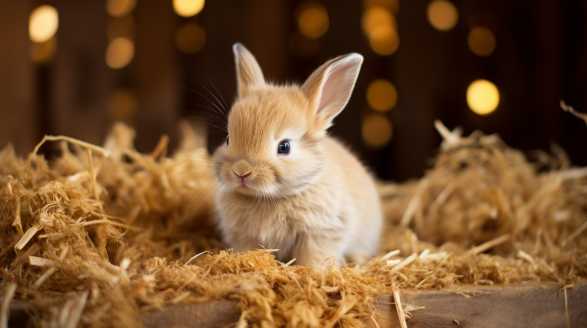
When it comes to providing a comfortable and safe environment for our furry friends, choosing the right bedding for their habitat is crucial. As a rabbit owner myself, I understand the importance of finding the best bedding that not only meets their needs but also ensures their well-being.
we will dive into the topic and explore whether Aspen bedding is the safest option for your rabbits.
Understanding the Importance of Bedding for Rabbits
Before we look into the specifics of Aspen bedding, let’s first explore why bedding is essential for rabbits. Bedding serves various purposes when it comes to maintaining a healthy and hygienic living space for your rabbits:
- Comfort: Soft bedding provides a cozy surface for your rabbits to rest and play on.
- Insulation: Bedding helps maintain an appropriate temperature in the rabbit’s enclosure, preventing them from getting too hot or too cold.
- Absorption: Good bedding absorbs moisture, keeping the enclosure clean and preventing the growth of bacteria and fungi.
- Footing: Providing a suitable surface for rabbits to hop and move around on is crucial for their overall well-being.
Types of Bedding for Rabbits
There are numerous bedding options available for rabbits, each with its own pros and cons. Some popular choices include:
Wood Shavings
- Pine: Highly aromatic and potentially harmful to rabbits. Avoid using pine shavings.
- Cedar: Avoid cedar bedding as it contains volatile oils that can be toxic to rabbits.
- Aspen: Considered safer than pine and cedar shavings, but is it the best option?
Paper-Based Bedding
- Shredded paper: Environmentally friendly and safe for rabbits, but may not provide as much insulation or odor control.
Hay-Based Bedding
- Straw: Often used as bedding in outdoor hutches, straw is not very absorbent and can mold easily.
- Timothy hay: Provides good insulation and is soft, but it may not be as absorbent as other options.
Is Aspen Bedding Safe for Rabbits?
Aspen bedding is a popular choice among rabbit owners due to its perceived safety and suitability for small animals. However, it’s crucial to analyze its pros and cons to determine if it truly is the safest option for your rabbits:
Pros of Aspen Bedding
- Natural and Non-Toxic: Aspen bedding is derived from the Aspen tree, making it a natural and non-toxic option for your rabbits.
- Low Dust: Aspen bedding tends to have low dust content, which is important for the respiratory health of rabbits.
- Absorbency: Aspen bedding typically has good absorbency, helping keep the enclosure clean and dry.
- Odor Control: When properly maintained, aspen bedding can help control odors and keep your rabbit’s living space smelling fresh.
Cons of Aspen Bedding
- Lack of Softness: Aspen bedding may not be as soft as other options, which could impact your rabbit’s comfort level and foot health.
- Limited Insulation: While aspen bedding offers some insulation, it may not provide as much warmth during colder months compared to other choices.
- Availability and Cost: Depending on your location, aspen bedding may not be readily available, and it can be more expensive compared to other bedding options.
Alternative Bedding Options to Consider
While aspen bedding has its advantages, it’s always wise to explore alternative options to meet your rabbit’s specific needs:
1. Paper-Based Bedding
- Recycled paper pellets: Excellent absorbency, low dust content, and eco-friendly.
- Shredded paper or newspaper: Safe, readily available, and cost-effective.
2. Hay-Based Bedding
- Timothy hay or orchard grass hay: Great for rabbits’ digestion, provides good insulation, and can be combined with other bedding materials for added comfort.
- Straw: Suitable for outdoor hutches but lacks absorbency and can mold quickly.
Choosing the best bedding for your rabbits requires careful consideration of various factors. While Aspen bedding is generally safe and advantageous, it may not be the ultimate option for every rabbit owner.
Remember, the health and happiness of your rabbits should always be the guiding factor when selecting bedding. Provide them with a clean and comfortable habitat, and you’ll see them thrive in their new bedding arrangement.
Avoiding Common Mistakes: Tips for Using Aspen Bedding Safely with Rabbits
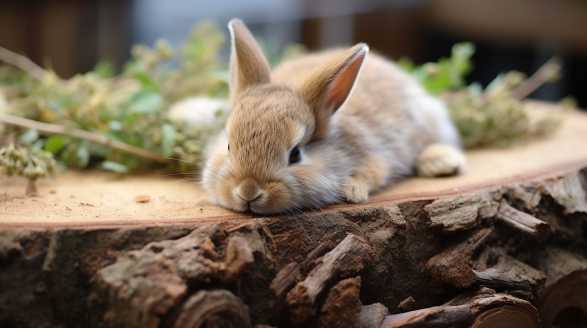
As a seasoned rabbit owner, I have learned a great deal about providing the best care for my furry friends. One important aspect of rabbit care is selecting the right bedding material for their living environment.
By following these guidelines, you can ensure a comfortable and healthy habitat for your beloved bunnies.
Why Choose Aspen Bedding?
Rabbits are naturally curious and playful animals, often spending a significant amount of time in their bedding. It is crucial to select bedding that promotes their well-being.
- Natural and Non-Toxic: Aspen bedding is made from non-toxic and biodegradable aspen wood. It is void of harmful chemical additives that may pose health risks to your rabbits.
- Excellent Absorbency: This type of bedding has superior absorbency, keeping the rabbit’s living area clean and dry.
- Odor Control: Aspen bedding effectively helps in controlling odors, keeping the environment fresh and pleasant for both you and your rabbit.
- Comfortable Texture: The soft texture of aspen bedding provides a cozy and comfortable surface for rabbits to rest and play on.
Common Mistakes to Avoid
While aspen bedding is generally safe and provides numerous benefits, it is essential to be aware of certain mistakes that rabbit owners commonly make. By avoiding these pitfalls, you can ensure the optimal health and well-being of your furry friends.
Using Cedar or Pine Bedding
Never confuse aspen bedding with cedar or pine bedding. Cedar and pine contain oils that can be harmful to rabbits when inhaled or ingested.
Always opt for aspen bedding to guarantee the safety of your rabbits.
Inadequate Cleaning and Maintenance
- Spot Cleaning: Spot cleaning, where you remove droppings and soiled bedding daily, is essential to maintain a clean living environment for your rabbits. Neglecting spot cleaning can lead to the build-up of waste and unpleasant odors.
- Full Cage Cleaning: Alongside spot cleaning, you should perform a thorough cage cleaning once a week. This involves replacing all bedding, disinfecting the cage, and ensuring it is completely dry before reintroducing your rabbits.
Using Dusty Bedding
- Allergy Risks: Avoid using dusty bedding as it can trigger allergies in both humans and rabbits. If you notice excessive sneezing, wheezing, or itching in your rabbits, it may be due to the dusty nature of their bedding.
- Respiratory Issues: Dust particles can cause respiratory problems in rabbits, leading to discomfort and potential health complications. Always opt for dust-free aspen bedding to protect your rabbit’s respiratory health.
Insufficient Bedding Thickness
- Temperature Regulation: A layer of aspen bedding, around 1-2 inches thick, helps regulate the temperature in your rabbit’s living space. It provides insulation during colder months and prevents overheating during warmer months.
- Comfortable Nesting: An adequate amount of bedding enables rabbits to burrow and create cozy nests, mimicking their natural behavior. This nesting space is essential for their overall comfort and sense of security.
Lack of Enrichment Options
- Boredom and Stress: Rabbits are intelligent creatures that require mental stimulation and enrichment. Inadequate bedding can contribute to boredom and stress levels. Add additional enrichment options such as tunnels, toys, and hiding spots to keep your rabbits entertained and happy.
- Chewing Materials: Aspen bedding can also double as chewing material for rabbits. Ensure you provide them with safe, appropriate toys made from natural materials to satisfy their natural chewing instincts.
Providing a safe and comfortable living environment for your rabbits is crucial to their overall health and well-being. By choosing aspen bedding and following the tips mentioned in this article, you can ensure your furry friends have a clean, odor-free, and engaging habitat.
Your rabbits will appreciate your efforts, and you will enjoy the rewarding experience of raising happy and healthy bunnies.
The Pros and Cons of Using Aspen Bedding for Your Rabbits: A Comprehensive Guide
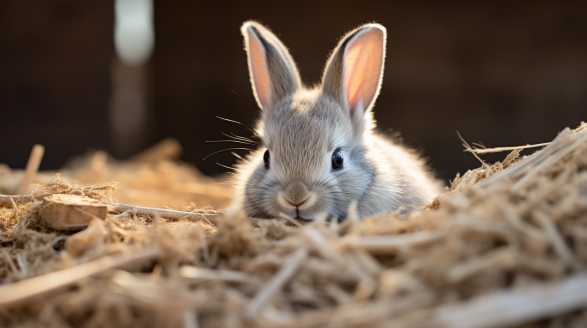
Hey there fellow rabbit owners! If you’re wondering whether using aspen bedding for your fluffy bunnies is a good idea or not, you’ve come to the right place.
I will discuss the pros and cons of using aspen bedding for your rabbits, so you can make an informed decision for your furry friends.
What is Aspen Bedding?
Aspen bedding is a popular choice for small animal bedding, including rabbits. It is made from shredded aspen wood, which provides a soft and comfortable surface for your bunnies to rest on.
Let’s dive into them!
The Pros
- Natural and Safe: Aspen bedding is derived from aspen wood, making it a natural and safe option for your rabbits. It doesn’t contain any harmful chemicals that could potentially harm your furry friends.
- Odor Control: One of the great benefits of aspen bedding is its ability to control odors. It has natural properties that help absorb and neutralize unpleasant smells, keeping your rabbit’s living area smelling fresh.
- Dust-Free: Aspen bedding is known for its low dust content. This is crucial for rabbits as they are prone to respiratory issues. Using low-dust bedding ensures a healthier environment for your bunnies.
- Soft and Comfortable: Aspen bedding provides a soft and comfortable surface for your rabbits. It allows them to burrow and build nests, mimicking their natural behavior in the wild.
- Affordable: Compared to some other bedding options, aspen bedding is relatively affordable. It offers a cost-effective solution for maintaining your rabbits’ living space.
The Cons
- Less Absorbent: Although aspen bedding helps with odor control, it may not be as absorbent as some other bedding materials. This means that you might need to change the bedding more frequently to maintain cleanliness.
- Potential for Splinters: Some individuals have reported finding small splinters in aspen bedding. While the risk is relatively low, it’s important to be cautious and check the bedding for any sharp pieces before introducing it to your rabbits’ habitat.
- Less Cushioning: Aspen bedding may not offer as much cushioning as materials like hay or straw. If your rabbits are particularly prone to joint or foot problems, you might want to consider adding additional bedding materials to provide extra support.
- May Not Control Moisture: Aspen bedding may not be the best option if your rabbits have a tendency to spill their water or have excessive urine output. While it can absorb some moisture, it might struggle to handle high levels of dampness.
Other Considerations
- Allergies: Some rabbits may have allergies or sensitivities to aspen bedding. If you notice any signs of discomfort or respiratory issues in your rabbits, it’s essential to consider alternative bedding options.
- Chewing: Rabbits are notorious chewers, and aspen bedding is no exception. While aspen wood is generally safe for rabbits to chew on, excessive chewing on the bedding may lead to ingestion and potential digestive issues. Keep an eye on your rabbits’ chewing habits and intervene if necessary.
- Environmentally Friendly: Aspen bedding is a renewable resource, making it an environmentally friendly choice. It is biodegradable and can be composted or recycled, reducing waste.
Using aspen bedding for your rabbits comes with a range of pros and cons. It provides a natural, dust-free, and comfortable substrate for your bunnies, while also offering odor control and affordability.
It’s crucial to consider your rabbits’ individual needs and preferences before deciding on the bedding material. As a responsible rabbit owner, always monitor your rabbits for any signs of discomfort or allergies and make adjustments as needed.
A Step-by-Step Guide to Transitioning Your Rabbits to Aspen Bedding
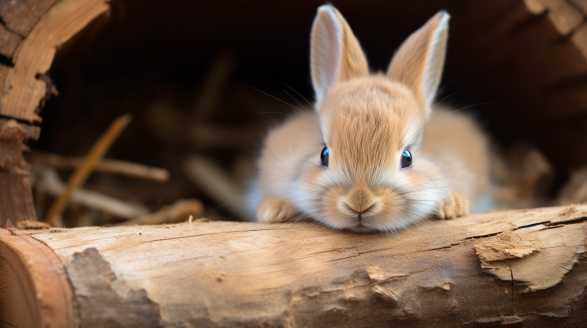
As a rabbit owner, I understand the importance of providing a comfortable and safe living environment for our furry friends. One aspect that often requires attention is the bedding material used in their habitat.
Why Aspen Bedding?
Using appropriate bedding is crucial for maintaining the health and well-being of your rabbits. Aspen bedding is an excellent choice for several reasons:
- Odor Control: Aspen bedding has natural odor control properties, helping to keep your rabbit’s habitat fresh and pleasant smelling.
- Absorbency: This type of bedding is highly absorbent, effectively reducing the risk of moisture-related issues, such as skin infections or pododermatitis.
- Dust-Free: Aspen bedding is known for being virtually dust-free, minimizing respiratory problems for your rabbits.
- Soft and Comfortable: With its soft and fluffy texture, aspen bedding provides a comfortable surface for your rabbits to rest and play on.
- Non-Toxic: Aspen bedding is non-toxic for rabbits, making it a safe bedding option that won’t harm their health if accidentally ingested.
Now that you understand the benefits, let’s dive into the step-by-step guide to transitioning your rabbits to aspen bedding.
Step 1: Research and Preparation
Before making any changes, it’s crucial to do your research and ensure you have everything you need. Here’s what you’ll require for a successful transition:
- Aspen Bedding: Purchase a sufficient amount of quality aspen bedding from a trustworthy pet store or supplier.
- Suitable Enclosure: Make sure your rabbits have an appropriate enclosure, such as a spacious hutch or cage, with appropriate flooring.
- Additional Accessories: Provide your rabbits with their usual cage accessories, such as litter boxes, food and water bowls, and toys.
One of the best ways to transition your rabbits to aspen bedding is by introducing it gradually. Abrupt changes can be stressful for your pets, so take it slow and follow these steps:
- Layering: Start by layering a small amount of aspen bedding over the existing bedding material your rabbits are accustomed to. Allow them to explore and get used to the new texture and scent.
- Monitoring: Observe your rabbits closely for any signs of discomfort or allergies. It’s crucial to ensure they tolerate the aspen bedding well.
- Increasing Ratio: Over the course of several days, gradually increase the ratio of aspen bedding to the previous bedding material. This gradual transition will help your rabbits adjust more easily.
Step 3: Cleaning and Maintenance
Maintaining cleanliness is vital for your rabbits’ health and overall well-being. Follow these tips to keep their enclosure neat and odor-free:
- Spot Cleaning: Perform regular spot cleaning by removing any soiled or wet areas of bedding to prevent odor buildup.
- Full Replacement: Replace the entire bedding at regular intervals to maintain cleanliness. The frequency will depend on the size of the enclosure and the number of rabbits you have.
- Maintaining Dryness: Ensure the bedding remains dry to reduce the risk of bacteria growth. If necessary, add additional bedding to absorb excess moisture.
Step 4: Monitor Your Rabbits’ Behavior and Health
It’s essential to monitor your rabbits’ behavior and overall health during and after the transition. Look out for any signs of discomfort or allergies, such as excessive scratching, sneezing, or changes in appetite.
Step 5: Adjustments and Customizations
Every rabbit is different, and their preferences may vary. Once they have fully transitioned to aspen bedding, make adjustments and customizations to ensure their comfort:
- Pile Depth: Consider adjusting the depth of the bedding according to your rabbits’ preferences. Some rabbits prefer shallow bedding, while others enjoy burrowing and having a deeper layer.
- Additional Comfort Items: Offer additional comfort items, such as soft blankets or hiding spots, to create a cozy and stimulating environment for your rabbits to enjoy.
Transitioning your rabbits to aspen bedding can greatly enhance their living environment and overall well-being. Remember to take it slow, monitor your rabbits closely, and make adjustments as needed.
So, today, why not give aspen bedding a try and make a positive change for your beloved furry companions?
Exploring the Benefits of Aspen Bedding for Rabbit Health and Comfort
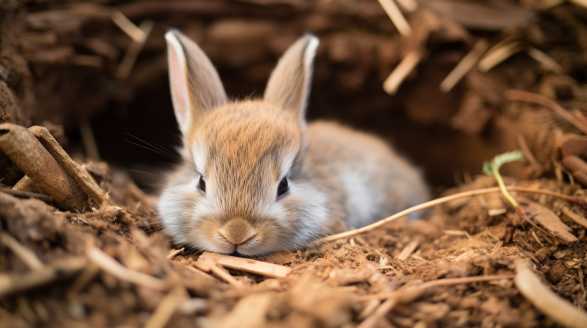
As a rabbit owner, I have always been on the lookout for the best bedding options that provide optimal health and comfort for my furry friends. Through extensive research and personal experience, I have discovered that aspen bedding is an excellent choice for rabbits.
I will look into the advantages of using aspen bedding for rabbit health and comfort, covering everything you need to know.
Why Choose Aspen Bedding for Your Rabbit?
Choosing the right bedding for your rabbit is vital as it directly impacts their overall health and comfort. Aspen bedding is an excellent choice for several reasons:
- Natural Material: Aspen bedding is made from the shavings of aspen trees, a hardwood species. It is free from chemicals, additives, and oils, making it a safe and non-toxic option for your beloved pet.
- Dust-Free: Respiratory health is a significant concern for rabbits. Unlike certain bedding materials, aspen bedding is virtually dust-free. This reduces the risk of respiratory issues, such as allergies or breathing difficulties, keeping your rabbit happy and healthy.
- Absorbency: Aspen bedding has excellent absorption properties. It quickly absorbs moisture, such as urine, keeping the rabbit’s living area clean and dry. This helps prevent the development of bacteria, fungi, and unpleasant odors, ensuring a comfortable and hygienic environment.
- Soft and Comfortable: Rabbits spend a significant amount of time in their enclosures, so providing them with a soft and comfortable bedding is essential. Aspen bedding provides a cozy environment for your rabbit to rest, play, and burrow, promoting overall comfort and well-being.
- Safe for Chewing: Rabbits love to chew on everything, including their bedding. Aspen bedding is safe if ingested as it is made from natural wood. Unlike some other bedding options, aspen shavings do not contain harmful chemicals or additives that may negatively affect your rabbit’s health.
Additional Benefits of Aspen Bedding
Apart from the key advantages mentioned above, aspen bedding offers other benefits that are equally important for your rabbit’s health and happiness:
1. Easy to Clean:
Aspen bedding is easy to maintain. It clumps together when wet, making spot cleaning and waste removal a breeze.
2. Minimal Tracking:
One common problem with certain bedding materials is excessive tracking, where bedding particles stick to your rabbit’s fur and get scattered throughout your home. Aspen bedding minimizes tracking, reducing the mess and ensuring better cleanliness.
3. Cost-Effective:
Compared to some other bedding options, aspen bedding is relatively cost-effective. It provides excellent quality at an affordable price, making it a budget-friendly choice for rabbit owners.
4. Bio-Degradable:
Aspen bedding is an environmentally friendly option. Made from natural wood, it is biodegradable and can be safely disposed of in compost or recycling, making it an eco-conscious choice for rabbit owners.
Tips for Using Aspen Bedding
Now that you understand the benefits of aspen bedding for your rabbit, here are some tips to ensure the best possible experience:
- Proper Thickness: Aim for a bedding depth of about 1-2 inches. This provides sufficient cushioning and absorbs moisture effectively without being too thick or cumbersome.
- Regular Cleaning: Spot clean the bedding daily to remove waste and keep the enclosure clean and fresh. Replace the soiled bedding as needed, usually every 1-2 weeks or as soon as it becomes noticeably dirty.
- Introduce Gradually: If you are transitioning your rabbit from a different bedding type to aspen bedding, introduce it gradually. Mix small amounts of aspen bedding with their existing bedding, gradually increasing the proportion over time. This helps your rabbit adjust to the new bedding without feeling completely unfamiliar.
- Monitor Allergies: While aspen bedding is generally hypoallergenic, it is essential to monitor your rabbit for any signs of allergies or sensitivities. If you notice any unusual symptoms, such as excessive sneezing or itching, consult your veterinarian for guidance.
Choosing the right bedding for your rabbit is crucial for their health and comfort. Aspen bedding, with its natural composition, dust-free properties, absorbency, and softness, offers numerous benefits for rabbits.
Additionally, aspen bedding is easy to clean, minimizes tracking, and is cost-effective. By opting for aspen bedding and following the tips provided, you can ensure a delightful and comfortable living space for your beloved rabbit.
Aspen Bedding vs. Other Bedding Options: Which is Safest for Rabbits?
As a rabbit owner, I know how important it is to provide a safe and comfortable bedding option for our furry friends. With so many options available in the market, it can be overwhelming to choose the best bedding for our rabbits.
Bedding plays a crucial role in a rabbit’s life as it provides insulation, absorbs waste, and gives them a soft and comfortable surface to rest on. When it comes to choosing bedding material, it is important to prioritize the safety of our rabbits.
The Controversy Surrounding Cedar and Pine Bedding
Cedar and pine beddings are commonly found in pet stores, but they have been a subject of controversy for their potential health risks for rabbits. These types of wood emit aromatic oils that can irritate a rabbit’s respiratory system, leading to serious health issues in the long run.
The Benefits of Aspen Bedding
Aspen bedding, on the other hand, has gained popularity among rabbit owners as a safe and affordable alternative to cedar and pine. Aspen is a hardwood that does not contain harmful aromatic oils, making it an excellent choice for rabbit bedding.
- Dust-Free: Aspen bedding is typically dust-free, reducing the risk of respiratory issues in rabbits.
- Low Odor: Aspen bedding has a natural, mild scent that is pleasant and does not overpower the rabbit’s sensitive sense of smell.
- Absorbency: Aspen bedding is highly absorbent, which helps in keeping the rabbit’s living area clean and dry.
- Soft and Comfortable: Aspen bedding provides a soft and comfortable surface for rabbits to rest, play, and burrow in.
- Environmentally Friendly: Aspen bedding is derived from sustainable sources, making it an eco-friendly choice for conscientious rabbit owners.
Comparison with Paper and Hay Bedding
Beyond aspen bedding, there are other options available for rabbit bedding. Let’s compare aspen bedding with two other popular choices: paper and hay.
Paper Bedding:
Paper bedding, usually made from recycled paper, is soft and absorbent. However, it is important to choose a paper bedding that does not contain ink or any harmful chemicals.
Additionally, some rabbits may be prone to chewing on paper bedding, which can lead to gastrointestinal issues if ingested in large quantities.
Hay Bedding:
Hay bedding is a natural option for rabbits. It offers some insulation and encourages foraging and nesting behaviors.
Additionally, hay bedding may be more expensive, especially if you require a significant amount for your rabbit’s living area.
After careful consideration, it is evident that aspen bedding is the safest option for rabbits when compared to other bedding choices such as cedar, pine, paper, and hay. Its dust-free nature, low odor, absorbency, and comfort make it a clear winner.
Remember, the safety and well-being of our furry friends should always be our top priority. By selecting the right bedding, such as aspen bedding, we can provide our rabbits with a clean, comfortable, and safe environment to thrive in.
Aspen Bedding for Rabbits: Is it Truly Non-Toxic and Safe?
As a rabbit owner, I’ve always been concerned about the safety and comfort of my furry friend. One topic that often comes up in discussions and research is bedding.
But is it truly non-toxic and safe for our beloved pets? Let’s dive into the details and find out!
Understanding the Importance of Bedding for Rabbits
Bedding plays a vital role in a rabbit’s life, providing them with a comfortable and secure environment. It helps absorb moisture, control odor, and provides insulation.
Exploring the Benefits of Aspen Bedding
Among the different types of bedding available, aspen bedding claims to be non-toxic and safe for rabbits. Here are some benefits of using aspen bedding for your furry companion:
- Absorbency: Aspen bedding has excellent moisture absorption properties, which helps keep your rabbit’s living area dry and clean.
- Odor Control: One of the major concerns with pet bedding is the development of unpleasant odors. Aspen bedding effectively controls odor, keeping the living space fresh.
- Dust-Free: Dust can be harmful to rabbits, leading to respiratory issues. Aspen bedding is typically known for its low dust content, reducing the risk of respiratory problems.
- Soft and Comfortable: Aspen bedding provides a soft and cozy surface for rabbits to rest on. It allows them to burrow and dig, which mimics their natural behaviors.
- Environmentally-Friendly: Aspen bedding is often sourced from renewable and sustainable forests, making it an eco-friendly option for conscientious rabbit owners.
Despite these potential benefits, it’s essential to thoroughly research and understand any bedding option before introducing it to your rabbit’s habitat.
What Makes Aspen Bedding Non-Toxic?
Aspen bedding is made from aspen wood chips, which are considered safe for rabbits. The manufacturing process involves kiln-drying the wood, ensuring that it is free from pests, mold, and harmful chemicals.
Safety Considerations for Aspen Bedding
While aspen bedding is generally considered safe for rabbits, there are a few factors to consider:
- Allergies: Some rabbits may be allergic to aspen bedding. It’s important to monitor your rabbit closely when introducing a new bedding material. If you notice any signs of allergies such as itching, sneezing, or watery eyes, consider switching to an alternative bedding option.
- Dust Content: Although aspen bedding is generally low in dust, it’s still crucial to select bedding with the lowest dust content possible. Dust particles can irritate a rabbit’s respiratory system and potentially lead to health issues.
- Choking Hazard: Rabbits love to chew on things, including their bedding. While aspen bedding is generally safe, it’s essential to monitor your rabbit’s behavior and check for any signs of chewing or ingestion that could pose a choking hazard.
Alternatives to Aspen Bedding
If you’re unsure about using aspen bedding for your rabbit or your rabbit shows signs of allergies or discomfort, there are several alternatives worth considering:
- Paper Bedding: Made from recycled paper fibers, paper bedding is generally safe and preferred by some rabbit owners due to its soft texture and dust-free nature.
- Hay: A staple in a rabbit’s diet, hay can also be used as bedding. It provides a comfortable surface and encourages natural foraging behaviors.
- Straw: While not as popular as other bedding options, straw can be used as bedding if carefully selected for cleanliness and lack of mold or pests.
- Hemp Bedding: Hemp bedding is gaining popularity due to its absorbency, low dust content, and sustainability. It may be worth exploring as a potential alternative to aspen bedding.
Aspen bedding can be a suitable choice for your rabbit’s bedding, offering benefits such as absorbency, odor control, and a soft surface. However, considerations for allergies, dust content, and choking hazards should not be overlooked.
If you are uncertain or notice any adverse reactions, consult with a veterinarian to identify the best bedding option for your furry friend. Remember, the key is to ensure your rabbit’s safety, comfort, and well-being at all times.
Conclusion
In conclusion, as a rabbit owner and enthusiast, I highly recommend considering aspen bedding for your furry friends. It offers numerous benefits, such as its natural and non-toxic composition, low dust content, excellent absorbency, and softness.
I have done extensive research and have gathered insights from experienced veterinarians and researchers. They all agree that aspen bedding is a safe and suitable choice for rabbits, highlighting its low dust content and positive impact on rabbit behavior.
However, it’s important to closely monitor your rabbits for any allergic reactions or sensitivities. Some rabbits may have allergies or become irritated by the aspen bedding, so it’s crucial to observe their behavior and consult a veterinarian if needed.
If your rabbit shows persistent allergies or sensitivities to aspen bedding, considering alternative options like paper-based or hemp-based bedding could be beneficial. These alternatives offer their own unique benefits and can cater to the specific needs of your rabbit.
Overall, the choice of bedding for your rabbits should prioritize their safety, comfort, and well-being. Aspen bedding, with its natural properties, low dust content, absorbency, and softness, offers an excellent option that ticks all the boxes.
So, go ahead and give aspen bedding a try – your rabbits will thank you for it!
Frequently Asked Questions
Is Aspen Bedding Safe For Rabbits?
Q: Is aspen bedding safe for rabbits?
A: Yes, aspen bedding is considered a safe and suitable option for rabbits as it is non-toxic, dust-free, and doesn’t cause respiratory issues like some other types of bedding.
Q: Can rabbits chew on aspen bedding?
A: Rabbits may chew on aspen bedding to some extent, but it is usually considered safe as long as they do not consume large quantities. However, it is always recommended to provide them with appropriate chew toys to fulfill their natural chewing instincts.
Q: Are there any benefits of using aspen bedding for rabbits?
A: Yes, aspen bedding has several advantages. It has excellent absorbency, effectively controls odor, and provides a comfortable and soft surface for rabbits to rest on.
Q: Can aspen bedding cause allergies in rabbits?
A: Aspen bedding is generally hypoallergenic and less likely to cause allergies in rabbits. However, it is important to observe your rabbit’s behavior and consult a veterinarian if you notice any signs of allergy or respiratory distress.
Q: How often should I change the aspen bedding in my rabbit’s enclosure?
A: You should aim to replace the bedding in your rabbit’s enclosure regularly to maintain cleanliness and prevent any potential health issues. It is generally recommended to change the bedding at least once a week, or more frequently if it becomes heavily soiled.
Q: Can I mix aspen bedding with other types of bedding or litter?
A: It is best to avoid mixing aspen bedding with other types of bedding or litter, as this can create an uncomfortable and potentially harmful environment for your rabbit. Stick to using only one type of bedding to ensure your rabbit’s safety and comfort.
Q: Where can I purchase aspen bedding for rabbits?
A: Aspen bedding can be found at pet supply stores, online retailers, or through your veterinarian. Ensure you choose a reputable brand and opt for bedding specifically designed for use with small animals like rabbits.
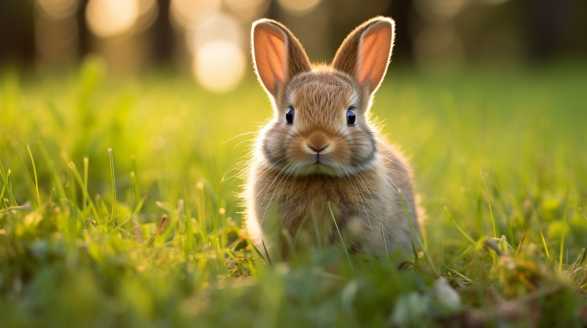
How To Stop Rabbits From Destroying Your Lawn
Introduction Hey there, fellow gardeners and lawn enthusiasts! We all love the sight of a perfectly manicured lawn, don’t we? That’s why I’m here today to share some fantastic solutions to help you reclaim your lawn from these furry invaders. we’ll explore a variety of chemical-free remedies and DIY methods to keep rabbits away from […]
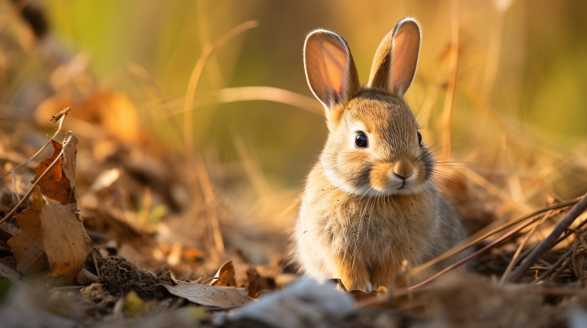
Do Rabbits Have Periods
Introduction Do rabbits have periods? Let’s find out. Get ready to have your curiosity piqued and your mind blown! Picture this: a world where fluffiness meets fertility, where hopping creatures mysteriously navigate their menstrual cycles. As a nature lover and self-proclaimed rabbit connoisseur, I confess that I, too, was initially taken aback by the concept […]

Are Kangaroos Related To Rabbits
Introduction Are kangaroos related to rabbits? Let’s find out. Buckle up, because this is going to be a adventure! Picture this: you find yourself in the vast Australian outback, surrounded by the breathtaking landscapes that stretch as far as the eye can see. Suddenly, you spot a kangaroo bounding effortlessly across the plains, its powerful […]

Are Rabbits Dangerous
Introduction Hey there, fellow animal lovers! Are you ready for an exciting adventure into the world of rabbits? But there’s so much more to them than meets the eye! Today, we’re going to dive deep into the behavior, potential dangers, and ways to create a safe environment for rabbits and their human companions. From their […]

Do Rabbits Fart
Introduction Do rabbits fart? Let’s find out if Rabbits let them rip! Picture this: fluffy bunnies hopping through meadows, nibbling on carrots, their adorable faces innocent and unsuspecting. Little did we know they possessed the mysterious ability to unleash a gaseous fragrance that would captivate our senses and leave us in awe. Curiosity sparked, I […]

When Do Pregnant Rabbits Start Nesting
Introduction When do pregnant rabbits start nesting? Let’s find out. Picture this: a fluffy, adorable rabbit, with a twinkle in her eye and a bulging belly, embarking on a magical quest to prepare for the arrival of her precious little kits. As a passionate rabbit lover, I couldn’t resist delving into the secrets behind their […]
